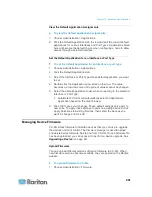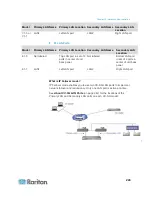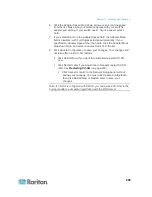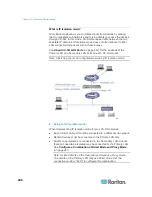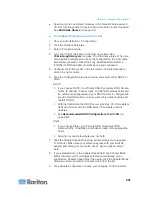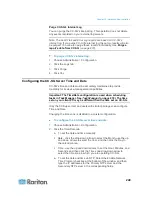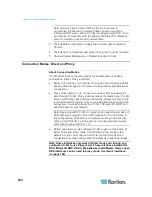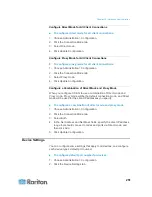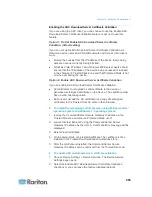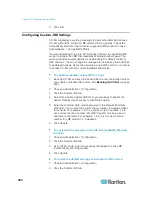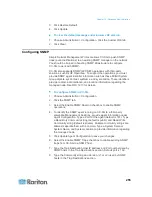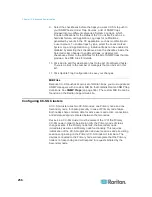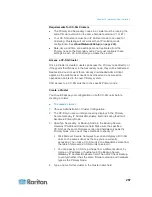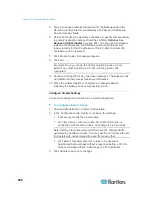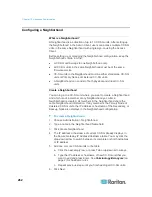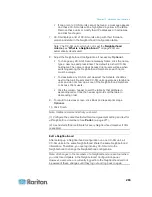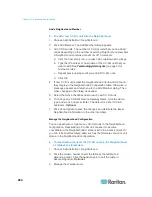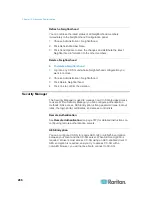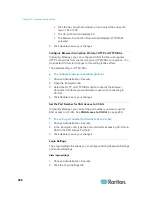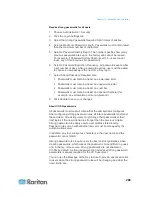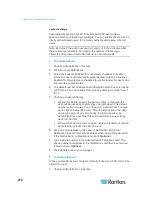
Chapter 15: Advanced Administration
255
3. Click Restore Default.
4. Click Update.
To clear the default message and minimum JRE version:
1. Choose Administration > Configuration. Click the Custom JRE tab.
2. Click Clear.
Configuring SNMP
Simple Network Management Protocol allows CC-SG to push SNMP
traps (event notifications) to an existing SNMP manager on the network.
You should be trained in handling SNMP infrastructure to configure
CC-SG to work with SNMP.
CC-SG also supports SNMP GET/SET operations with third-party
solutions, such as HP OpenView. To support the operations, you must
provide SNMP agent identifier information such as these MIB-II System
Group objects: sysContact, sysName, and sysLocation. These identifiers
provide contact, administrative, and location information regarding the
managed node. See RFC 1213 for details.
To configure SNMP in CC-SG:
1. Choose Administration > Configuration.
2. Click the SNMP tab.
3. Select the Enable SNMP Daemon checkbox to enable SNMP
operations.
4. To identify the SNMP agent running on CC-SG to a third-party
enterprise Management Solutions, provide agent information under
Agent Configuration. Type a Port for the agent (default is 161). Type
a Read-Only Community string (default is public) and Read-Write
Community string (default is private). Multiple community strings are
allowed; separate them with a comma. Type a System Contact,
System Name, and System Location to provide information regarding
the managed node.
5. Click Update Agent Configuration to save your changes.
6. Select the Enable SNMP Traps checkbox to enable sending SNMP
traps from CC-SG to a SNMP host.
7. Type the Trap Destination Host IP address and Port number used by
SNMP hosts in the Trap Destinations section. Default port is 162.
8. Type the Community string and Version (v1 or v2) used by SNMP
hosts in the Trap Destinations section.

